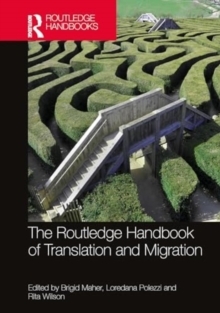Liburuaren datuak

The Routledge Handbook of Translation and Migration
AA.VV.
-
Editoriala
Taylor & Francis Ltd
- Gaia Sociología
- EAN 9781032254579
- Idioma Inglés
- State Disponible
- Orrialdeak 478
- Neurria 246x174x27 mm.
- Weight 1000
- Release date: 22/10/2024
Sinopsia
The Routledge Handbook of Translation and Migration explores the practices and attitudes surrounding migration and translation, aiming to redefine these two terms in light of their intersections and connections. The volume adopts an interdisciplinary and transnational perspective, highlighting the broad scope of migration and translation as not only linguistic and geographical phenomena, but also cultural, social, artistic, and psychological processes. The nexus between migration and translation, the central concern of this Handbook, challenges limited conceptualisations of identity and belonging, thereby also exposing the limitations of monolingual, monocultural models of nationhood.
Through a diverse range of approaches and methodologies, individual chapters investigate specific historical circumstances and illustrate the need for an intersectional approach to questions of language access and language mediation. With its range of approaches and case studies, the volume highlights the inherently political nature of translation and its potential to shape social and cultural inclusion, emphasising the crucial role of language and translation in informing professional practices, institutional policies, educational approaches and community attitudes towards migration. By bringing together perspectives from both researchers and creative practitioners, this book makes an innovative contribution to ongoing global discussions on linguistic hospitality and diversity, ideal for those pursing postgraduate and doctoral studies in translation studies, linguistics, international studies and cultural studies.